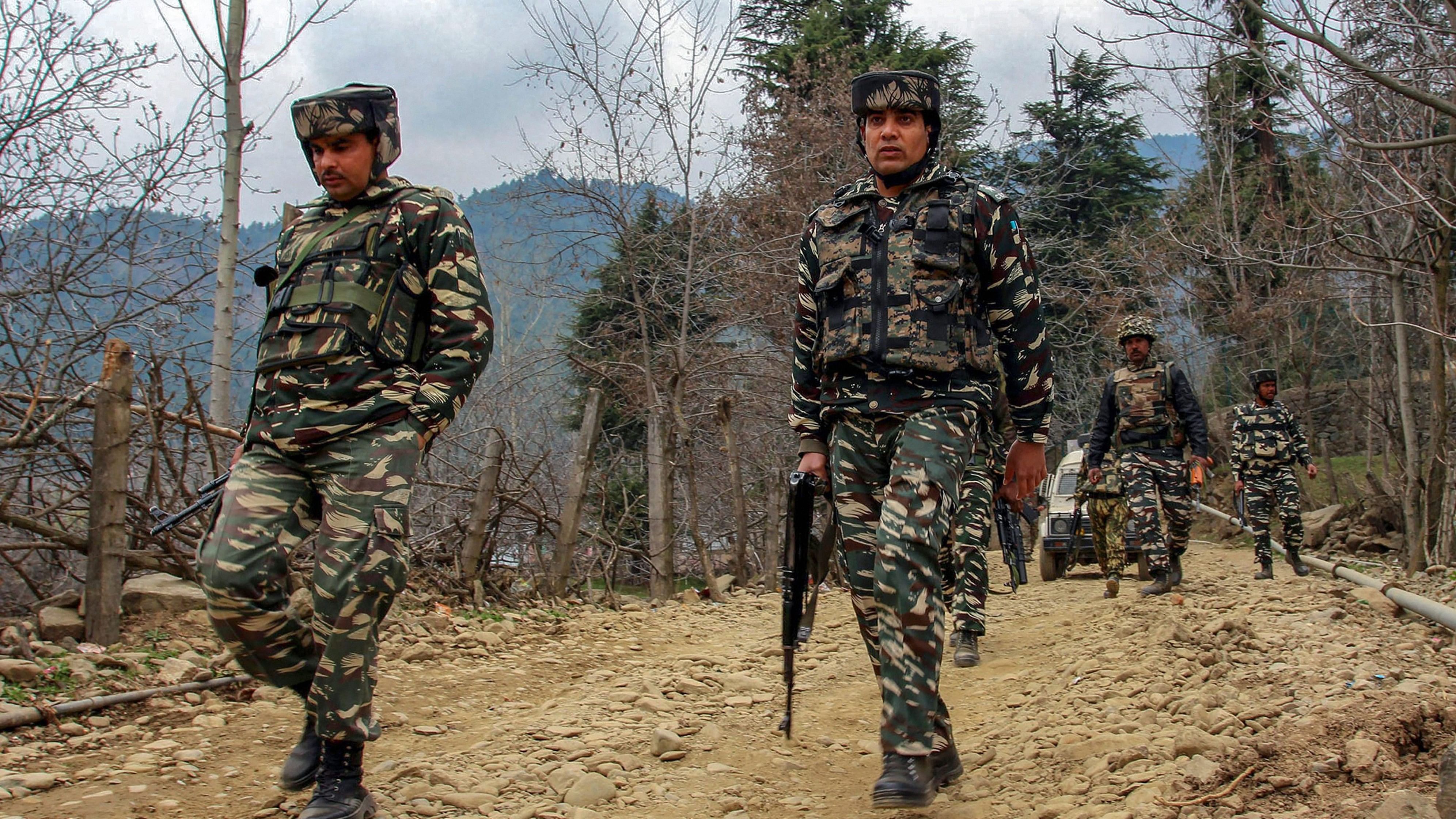
Image for representation.
Credit: PTI Photo
The recent attack on Kupwara police station by 13 armed personnel of the 160 Battalion of the Territorial Army (TA) based at Trehgam, led by three Lieutenant Colonels—Ankit Sood, Raju Chauhan, and Nikhil—is indeed a slur on the discipline and rectitude of the Indian Army, which commands a reputation of being one of the best in the world.
Consequent to a drug-related case being investigated by the Kupwara police, the house of a jawan of the TA unit was raided in Batpora, and he was taken to the police station. On learning of the jawan having been detained by the police, the other jawans, led by the three officers, stormed into the police station on May 28 and attacked the policemen, hitting them with their rifle butts, kicking them, and brutally assaulting them. Four policemen had to be hospitalised.
On the arrival of senior police officers, the army personnel took to their heels after snatching the cell phones of policemen, including those of SHO Inspector Mohammed Ishaq. They also abducted Head Constable Ghulam Rasool. He was released in the wee hours of the following day in exchange for the release of the jawan under detention.
Despite the CCTV footage going viral, the incident was kept under wraps, and the defence spokesperson denied any such incident having taken place. The incident ultimately found its way to the media on May 30 and became front-page news.
Now that the matter has come into national limelight and the FIR has been lodged with nine sections of the IPC slapped, including an attempt to murder 16 TA personnel apart from the Arms Act, these recalcitrant personnel will have to face the consequences of their misdemeanour and act of violence. Despite being in denial or playing down the incident, the Army will have to act against them under the Army Rules. Severe penal action will serve as a deterrent to others. Especially in the Union Territory of Jammu and Kashmir (J&K), where the Army, the Central Reserve Police Force, and the J&K police operate in tandem against the militants, they ought to be in the best of relations for achieving success. They cannot be at loggerheads.
This was not the first instance. In 2017, eight police personnel were injured when Army personnel attacked them while they were stopping an Army convoy at a checkpoint in Ganderbal, Kashmir. In 2014, six policemen were injured when personnel of the High Altitude Warfare School in Sonmarg barged into the police station and started firing. The policemen were merely doing their duty by investigating a hit-and-run case and questioning Army personnel.
In a somewhat similar incident, 40 jawans of Arunachal Scouts, led by their Commanding Officer, a Colonel, went berserk in Bomdila police station and misbehaved with the Superintendent of Police (SP) and a lady Deputy Commissioner (DC) on November 3, 2018. This was a sequel to two inebriated jawans being taken to the police station for their misbehaviour with civilians, including women, the previous day during Buddha Mahotsava celebrations in the town. Though a major-rank officer rushed to the police station and got them released after apologising on behalf of the jawans, the CO visited the police station the following day and insisted on an apology from the police officials.
Apart from assaulting the policemen and snatching their weapons, the Army personnel vandalised the vehicles and property of the police station. One of the jawans went to the extent of cocking a light machine gun and menacingly pointing it towards the DC and SP—a very serious offence.
With the cantonment culture and exclusivity set to go, the defence personnel need to mingle and merge with the civil population. The government has decided to abolish all 62 cantonments. While the military areas in occupation of defence establishments will turn into military stations, the civil areas will be merged with the local municipalities. The cantonment mentality needs to be shed to treat all civilians as their own people. No defence personnel can claim that all his family members and
relatives are in defence services. They would have relatives, friends, and siblings who are civilians.
Frequent interaction between senior police officers and Army officials can go a long way in curbing incidents of clashes between police and the Army. With awareness among lower ranks that their top officials maintain good relations, they will not venture into acts of misdemeanour. Informal meetings and even mess gatherings would not only be conducive to warding off ugly incidents of clashes but also help achieve success in operations against anti-national forces. After all, our goals remain the same. To keep our country safe and well protected.
(The writer is a retired Inspector General of Police, CRPF)